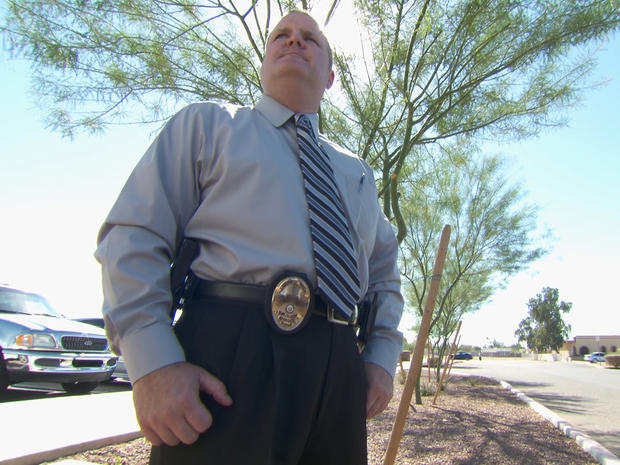American law enforcement encounters "honor" violence
(CBS) - Detective Michael Christian had never heard the term "honor killing" when he was called to the scene of a murder in Jonesboro, Ga., on July 5, 2008. Sandeela Kanwal, 25, was dead - strangled with a bungee cord in her family home. Her killer, it turned out, was her father, Chaudhry Rashid, who reportedly murdered his daughter because she wanted to divorce the cousin she'd been forced to marry.
Watch a sneak peek of Saturday's 48 Hours Mystery: A Family's Honor
"It was so out of left field," remembers Christian. "Usually, in family murders, somebody's drunk or it's spousal abuse - not a point of honor."
But this was different. As Sgt. Stefan Schindler told NPR a few months later, Rashid confessed, "and the reason he took his daughter's life, by his own words, was that she wasn't being true to her religion or to her husband."
According to the AHA Foundation, a non-profit group dedicated to eradicating religious or culturally sanctioned violence against western women, honor violence "describes physical violence against a woman or girl by another family member for engaging in behavior deemed by the family to be shameful."
On Saturday night, 48 Hours will explore the death of 20-year-old Noor Almaleki, an Iraqi-born young woman living in Arizona whose father ran her down in broad daylight with his SUV, apparently angry because she was becoming too "westernized."
Read 48 Hours producer Jonathan Leach's essay about reporting on honor violence
Det. Chris Boughey worked the Almaleki case, and is featured on 48 Hours. Boughey told Crimesider that so-called "honor" violence is different from traditional domestic violence when it comes to police investigations.
"Usually when we investigate one family member killing another, there's outrage and cooperation with police. People are standing in line to talk. But that wasn't true in this case," said Boughey.
In fact, it was harder.
"It's almost like a gang case," said Boughey. "No one wants to talk to you. Family members, friends, they fear isolation in the community. It's very frustrating."
Boughey's frustration is exactly why the AHA Foundation is working with John Jay College of Justice to collect cases of "honor" violence in the U.S.
"Right now, these cases are lumped in with domestic violence numbers," says Evan Misshula, one of the John Jay researchers. "Eventually we hope to get the FBI to start collecting data."
AHA has created a primer with advice for law enforcement and social service agencies about how to work with victims of "honor" violence. Among the advice, AHA warns investigators not to expect family cooperation and to be wary of translators who "may sympathize with the perpetrator and interfere with the investigation."
AHA has passed the primer to the National District Attorney's Association, which provides training and assistance to prosecutors around the country.
According to the director of the NDAA's National Center for the Prosecution of Child Abuse, the organization wants prosecutors to be more knowledgeable about how to approach these cases and "better protect victims."
"We are trying aggressively to address this issue and are proud to be a partner with AHA," wrote Suzanna Tiapula, in an email to Crimesider.
For now, as information about "honor" violence and forced marriages in the U.S. begin to get more attention, police are taking baby steps to adjust how they investigate these crimes and work with victims.
Det. Boughey points to a recent Arizona case where a young woman named Aiya Altameemi, a 19-year-old woman who was allegedly beaten, restrained and burned by her mother, father and sister for refusing to enter an arranged marriage with a man twice her age. The family has pleaded not guilty and their next court date is April 18.
To Boughey, who says he's trying to educate local law enforcement about the particulars of these kinds of cases, what is important about Altameemi's case is the fact that the young woman felt safe enough to come forward and tell an outsider about her ordeal.
"The number one thing is that this young lady had the gumption to tell law enforcement what happened," he says. "We ought to take that very seriously."

